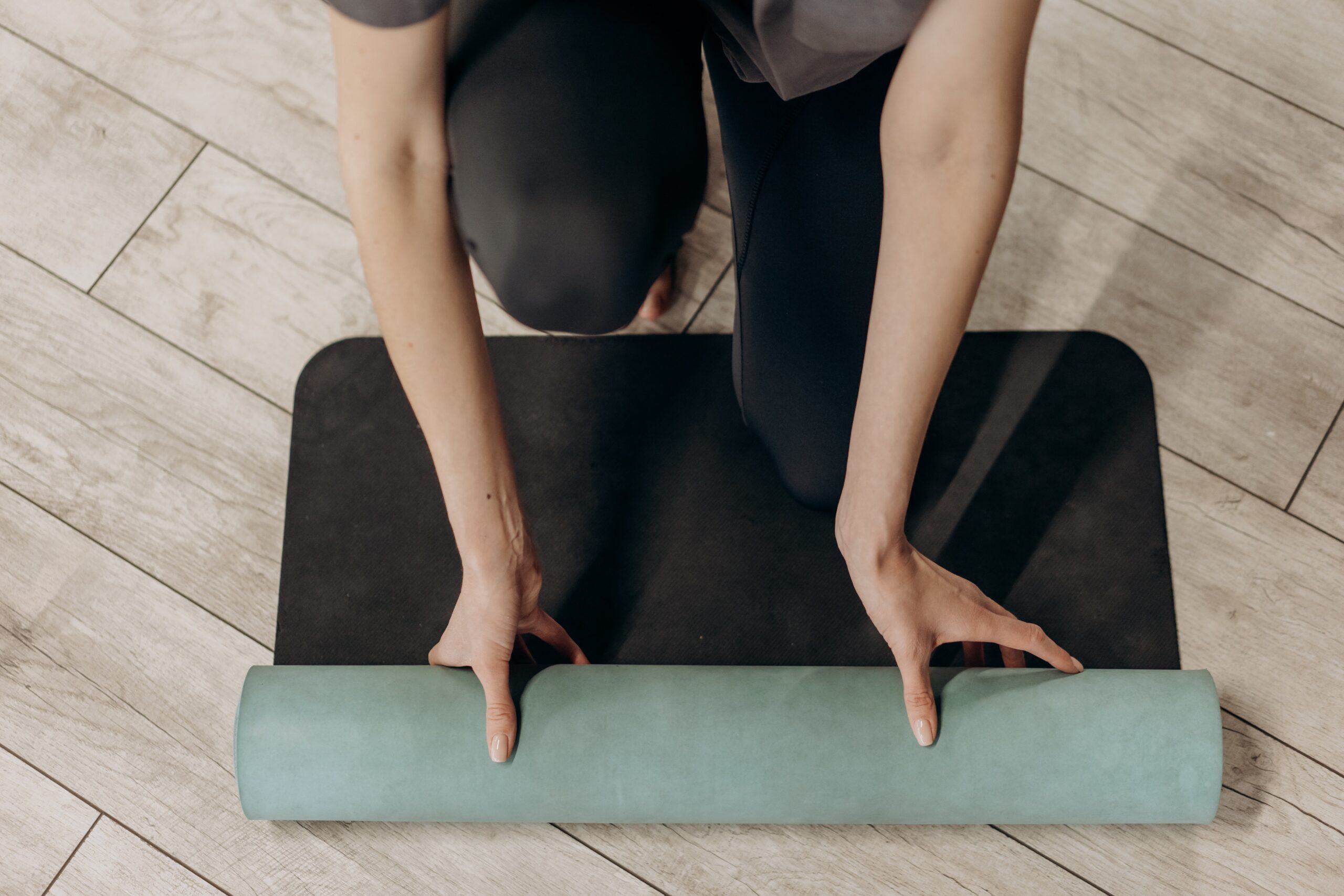The Importance of Regular Exercise Key Benefits, Fitness, and Wellness”
Regular physical exercise plays a vital role in preserving and promoting our overall health and well-being. The importance of engaging in consistent physical activity cannot be overstated. Not only does it help maintain a healthy weight, but it also improves cardiovascular health, strengthens muscles and bones, enhances mental clarity and mood, and reduces the risk of chronic diseases. In this article, we will delve into the significance of regular exercise and the myriad benefits it offers. By understanding the key role of exercise in our daily routines, we can make informed choices that contribute to a healthier and more fulfilling life.
Table of Contents
- Introduction: The Significance of Exercise
- Physical Benefits of Regular Exercise
- Enhances Cardiovascular Health
- Strengthens Muscles and Bones
- Promotes Weight Management
- Boosts Energy Levels
- Improves Sleep Quality
- Mental and Emotional Benefits of Regular Exercise
- Reduces Stress and Anxiety
- Enhances Mood and Mental Clarity
- Improves Cognitive Function
- Boosts Self-Confidence
- Preventive Health Measures through Exercise
- Reduces the Risk of Chronic Diseases
- Strengthens the Immune System
- Improves Digestive Health
- How to Incorporate Exercise into Daily Life
- Choosing an Exercise Routine
- Setting Realistic Goals
- Creating a Supportive Environment
- Overcoming Barriers and Staying Motivated
- Conclusion
- FAQs (Frequently Asked Questions)
- What are some easy exercises to start with if I’m a beginner?
- How often should I exercise to reap the maximum benefits?
- Can exercise help with weight loss?
- Are there any age limitations for engaging in regular exercise?
- Can exercise improve my mental focus and productivity?
1. Introduction: The Significance of Exercise

Exercise is not just about getting into shape or achieving a certain physical appearance. It goes far beyond that. Engaging in regular physical activity is a vital component in maintaining optimal health and overall well-being. It positively impacts our body, mind, and emotions, and it is crucial for leading a balanced and fulfilling life.
2. Physical Benefits of Regular Exercise
Enhances Cardiovascular Health

Engaging in cardiovascular exercises such as running, swimming, or cycling strengthens the heart and improves blood circulation. It lowers the risk of heart diseases, including heart attacks and strokes. Regular exercise also helps in reducing high blood pressure and maintaining healthy cholesterol levels.
Strengthens Muscles and Bones

Physical activities like weightlifting, resistance training, and yoga contribute to stronger muscles and bones. As we age, it becomes increasingly important to engage in exercises that improve bone density and preserve muscle mass. Regular strength training exercises can prevent conditions such as osteoporosis and sarcopenia.
Promotes Weight Management

Exercise plays a significant role in weight management by burning calories and increasing metabolism. Regular physical activity combined with a healthy diet helps in achieving and maintaining a healthy weight. It reduces the risk of obesity-related conditions like diabetes, cardiovascular diseases, and certain types of cancer.
Boosts Energy Levels

Contrary to popular belief, regular exercise boosts energy levels instead of depleting them. Physical activity increases oxygen flow and improves nutrient delivery to the body’s tissues, which leads to increased energy levels and overall vitality.
Improves Sleep Quality

Engaging in exercise helps regulate our sleep patterns and improves the quality of our sleep. It reduces the time taken to fall asleep and enhances the duration of deep sleep. However, it is essential to avoid exercising too close to bedtime, as it may lead to heightened alertness and difficulty in falling asleep.
Read more about Treating Insomnia: Medications, Lifestyle Changes, and Tips
3. The Psychological and Emotional Advantages of Consistent Physical Exercise

Reduces Stress and Anxiety

Exercise acts as a powerful stress reliever by releasing endorphins, which are natural mood enhancers. Physical activity helps reduce anxiety levels, improves mental clarity, and promotes a sense of well-being. It provides a healthy outlet for emotional tension and helps in managing daily stressors effectively.
Enhances Mood and Mental Clarity

Regular exercise has a positive impact on our mood, making us feel happier and more content. It stimulates the production of neurotransmitters like serotonin and dopamine, which are known as “feel-good” chemicals. Exercise also enhances mental clarity, concentration, and memory, boosting cognitive function.
Improves Cognitive Function

Exercise promotes brain health by increasing blood flow and oxygen supply to the brain. It stimulates the growth of new neurons and enhances neural connections, which can improve cognitive abilities such as memory, learning, and problem-solving.
Boosts Self-Confidence

Regular exercise improves self-esteem and self-confidence. As we achieve fitness goals and witness improvements in our physical abilities, we develop a positive body image and a sense of accomplishment. Exercise provides a platform for personal growth and boosts overall self-worth.
4. Preventive Health Measures through Exercise

Reduces the Risk of Chronic Diseases
Leading a sedentary lifestyle is a significant risk factor for chronic diseases such as cardiovascular diseases, diabetes, and certain types of cancer. Regular exercise can help prevent or manage these conditions by reducing inflammation, improving insulin sensitivity, and maintaining healthy body weight.
Strengthens the Immune System

Regular physical activity strengthens the immune system, making us more resistant to common illnesses and infections. Exercise increases the production of antibodies and boosts the circulation of immune cells, enhancing our body’s defense mechanisms.
Improves Digestive Health

Exercise promotes healthy digestion and regular bowel movements. It helps in maintaining a healthy weight, reducing the risk of gastrointestinal disorders, and improving overall gut health. Regular physical activity can alleviate symptoms of conditions like constipation and bloating.
5. How to Incorporate Exercise into Daily Life

Choosing an Exercise Routine
Select an exercise routine that aligns with your interests and preferences. It could include activities like walking, jogging, swimming, dancing, or joining a sports club. Find something that you enjoy and can sustain in the long run.
Setting Realistic Goals
Set achievable and realistic fitness goals based on your current fitness level.To prevent overexertion or injuries, it is important to gradually increase the intensity and duration of your workouts. By gradually progressing in your exercise routine, you give your body time to adapt and build strength, reducing the risk of strain or harm. This approach ensures a safe and effective fitness journey, allowing you to achieve your goals while prioritizing your well-being. Celebrate small milestones and track your progress to stay motivated.
Creating a Supportive Environment
Surrounds yourself with a supportive network of family, friends, or workout buddies who share your fitness goals. Having a support system can provide encouragement, accountability, and make exercise more enjoyable.
Overcoming Barriers and Staying Motivated
Identify and address any barriers that may hinder your exercise routine. It could be lack of time, physical limitations, or a busy lifestyle. Find creative ways to incorporate physical activity into your daily routine, such as taking the stairs instead of the elevator or going for a walk during your lunch break. Keep yourself motivated by rewarding yourself for sticking to your exercise regimen.
6. Conclusion
Regular exercise is a fundamental pillar of a healthy lifestyle. It offers a wide range of benefits, including improved physical fitness, enhanced mental well-being, and a reduced risk of chronic diseases. By incorporating exercise into our daily lives and making it a habit, we can experience a better quality of life and enjoy the long-term rewards it brings.
FAQs (Frequently Asked Questions)
1. What are some easy exercises to start with if I’m a beginner?
If you’re a beginner, some easy exercises to start with include brisk walking, cycling, swimming, and yoga. These activities are low-impact and can be tailored to your fitness level.
2. How often should I exercise to reap the maximum benefits?
For overall health benefits, it is recommended to engage in at least 150 minutes of moderate-intensity aerobic exercise or 75 minutes of vigorous-intensity aerobic exercise per week. You can divide this time into smaller sessions throughout the week.
3. Can exercise help with weight loss?
Yes, exercise can aid in weight loss by burning calories and increasing metabolism. However, it is important to combine exercise with a healthy diet for optimal weight management.
4. Are there any age limitations for engaging in regular exercise?
No, there are no age limitations for engaging in regular exercise. Physical activity is beneficial for individuals of all ages, and exercise routines can be modified to suit different fitness levels and abilities.
5. Can exercise improve my mental focus and productivity?
Yes, regular exercise improves mental focus and productivity by increasing blood flow and oxygen supply to the brain. It enhances cognitive function, memory, and concentration, leading to improved overall mental performance







 Viesearch - The Human-curated Search Engine
Viesearch - The Human-curated Search Engine

3 Comments